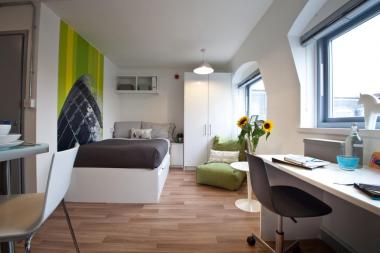Education Minister renews call for help with Student Accommodation
 Speaking to delegates at the Student Housing Symposium at the University of Pretoria on Thursday, Nzimande said his department had insufficient funds to deal with student housing backlog.
Speaking to delegates at the Student Housing Symposium at the University of Pretoria on Thursday, Nzimande said his department had insufficient funds to deal with student housing backlog.
Higher Education Minister Blade Nzimande decries the lack of private sector involvement in resolving the accommodation crisis experienced at universities.
As the Higher Education Department is developing a funding model to ease access to affordable education, accommodation has also proven to be a developing crisis with a shortage of housing for 200,000 students in higher learning institutions.
Speaking to delegates at the Student Housing Symposium at the University of Pretoria on Thursday, Nzimande said his department had insufficient funds to deal with the backlog.
Also read: New specialized JSE listings in property unlikely
Nzimande said that while the government was prioritising accommodation for students, it needed assistance from the private sector.
“I am very concerned” about the private sector’s failure to respond, the minister said. He had made a call to the private sector “to come in and play a role”, but “there’s hardly been anything”, said Nzimande.
He said the department had requested more funding from the Treasury to expand student housing infrastructure, and renewed his call to companies and investors to assist.
Also read: Indluplace Properties the first Residential REIT to list on JSE
“The results on both fronts have been disappointing. While we have made some progress in securing an increased budget allocation for student residences, it is nowhere near enough to meet the need.”
He said in the past three years, R1.6bn in government grants to universities for student housing projects had been supplemented by university funds of R700m. The combined amount of R2.3bn had provided only 9,000 additional beds, but the department had now teamed up with other role players to find a solution to the issue.
Also read: Private Sector hungry for Student Housing Boom
These partners include the EU Infrastructure Investment Fund, which has provided R30m for feasibility studies to look into the student-housing programme. The Development Bank of Southern Africa, the Public Investment Corporation, the Department of Public Works and financial institutions will also provide funding.
Private sector and government delegates to the symposium were joined by university vice-chancellors, principals of technical and vocational education, and training colleges and students, who painted a bleak picture of student housing.
Sefako Makgatho Health Sciences University vice-chancellor Chris de Beer said he was worried about the university’s infrastructure, which was in such disrepair it did not comply with health and safety standards.
Also read: Patrice Motsepe’s foray into property sector
De Beer said there were 250 uninhabitable units that had to be replaced by 2018, and 1,700 students had to be moved to the Pretoria city centre to comply with health and safety laws.
Stephen Smith, a policy adviser at the Association for Savings and Investment SA, a lobby group that represents insurers and asset managers, said the institutions were excited about the discussions.
He said funding required coordination. “There are a lot of moving parts… let’s have a unit put together by government to roll out a programme.”


















